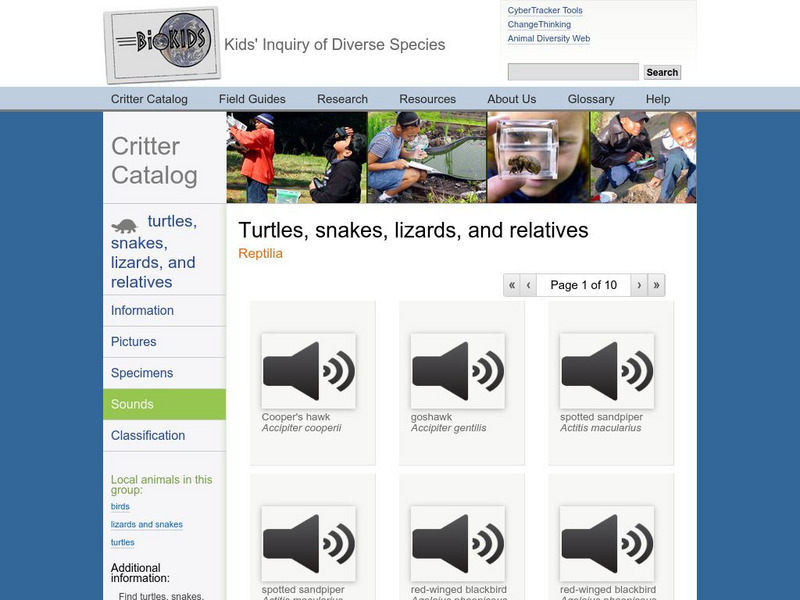The Brain Scoop
Tully Monster Mystery Solved!
What is the Tully Monster? Introduce your science classes to one of the great mysteries in animal classification with an engaging video from Brain Scoop's playlist on fossils and geology. The narrator examines Tully Monster fossils,...
FuseSchool
Animal Classification
So many animals, so many characteristics—how do we classify them all? A short tour of taxonomy awaits within a helpful Fuse School video on Evolution. Science scholars see how scientists sort animals into the main classes and what traits...
TED-Ed
How Do Animals Experience Pain?
Not all animals respond to pain the same way. Thanks to the structure of the nervous systems of different living organisms, vertebrates and invertebrates experience nociception—the sensory nervous system's response to pain.
Bozeman Science
Animals
For every human in the world, there are one million ants! The instructor shows the phylogenetic tree of animals and where they stand compared to other organisms. The video then focuses on vertebrates and invertebrates, exploring what...
Crash Course
Chordates
Did you know that coelacanths, a living chordate fossil, can live at an ocean depth of 2,300 feet, grow to be 6.5 feet long, and weigh almost 200 pounds? The narrator of a video series on evolution continues his way up the evolutionary...
PBS
Pbs Learning Media: Common Past, Different Paths
This time-lapse microphotography of developing embryos shows the common ancestry of all vertebrates. Footage from NOVA: "Odyssey of Life." [4:42]
Sophia Learning
Sophia: Characteristics of Vertebrates
Created to teach students of the 21st century, SOPHIA is bringing vertebrates straight to your fingertips. Become the commander of your own learning experiences as you take part in this interactive lesson. [1:38]
University of Michigan
Bio Kids: Critter Catalog: Turtles, Snakes, Lizards, and Relatives
Listen to the sounds of turtles, snakes, lizards, and other related reptiles.
Crash Course
Crash Course Biology #24: Chordates
Hank introduces us to ourselves by taking us on a journey through the fascinatingly diverse phyla known as chordata. And the next time someone asks you who you are, you can give them the facts: you're a mammalian amniotic tetrapodal...
Sophia Learning
Sophia: Animals: Vertebrates
A screencast tutorial which describes the major characteristics of animals with backbones called vertebrates. [1:38]
Environmental Education for Kids
Eek!: Animals: Skulls
David Stokes helps us understand differences in animal skulls. [10:42]
Next Vista for Learning
Next Vista for Learning: Vertebrates
A video exploring the characteristic of vertebrates as an animal with backbone. Video investigates what backbones look like and their function. Animals with backbones include fish, amphibians, reptiles, birds, and mammals. [1:33]










